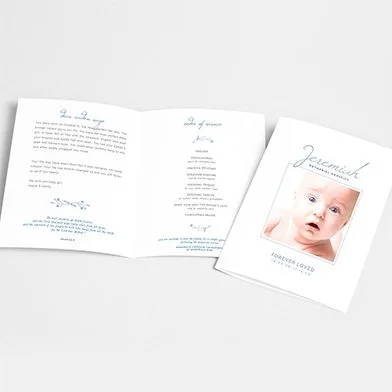life-limiting diagnosis
FIND HOPE, SUPPORT & COMMUNITY AFTER YOUR BABY RECEIVES A
Hi, friend. I am so sorry.
I am so sorry that you’re here.
You are in one of the most tender and vulnerable places you could be right now. You’ve just heard words that you never expected (and possibly never heard). You have probably looked up definitions to things you attempted to scribble down when your doctor called with your lab results. Maybe you replay that scene in the ultrasound room over and over again. You’re probably in shock. Lonely. And you have so many questions. Questions like: What do I do now? How do we continue to go forward? What’s going to happen?
You might not even know what questions you should be asking.
All you know is that you thought your pregnancy was going to end one way, and instead, it appears that your child’s life will look very different. Anticipatory grief is deep, powerful, and confusing at times. God says his grace is sufficient for you even in this (2 Corinthians 12:9), and even in the sorrow, we trust that you’ll also experience joy.
We hope that this is a helpful starting place for you as you walk this road. Imagine this like a conversation with friends – an opportunity to hold hands with many women who have walked ahead of you and have given ideas and suggestions for what made the difference for them in their journey. We hope that they inspire you and help you make decisions as you prepare to meet your child. Mostly, though, we hope you know you aren’t alone. We are here with you.
You’re so loved… and your baby is, too.
when your baby has received a life-limiting diagnosis
common questions
-
March of Dimes gives this really helpful definition about grief: "Grief is all the feelings you have when someone close to you dies. You may find it hard to believe that your baby died. You may want to shout or scream or cry. You may want to blame someone. Or you may want to hide under the covers and never come out. At times, your feelings may seem more than you can handle. You may feel sad, depressed, angry or guilty. You may get sick easily with colds and stomach aches and have trouble concentrating. All of these are part of grief."
You don't have to be afraid of grieving a certain way or not grieving a certain way. No feeling is “too much” or “not enough.” Everyone grieves differently, and that’s okay. Allow yourself to feel as you’re feeling and know that those feelings may ebb and flow over time.
-
No, you did nothing wrong. While it can be tempting to play the “what if” game, the reality is that we cannot control life or death. Even if there is a “reason” for your loss, we are not the ones who can create life or number our days; we simply aren’t that powerful. If you’re wrestling with guilt or shame over this topic, we recommend you share honestly with someone you trust and/or a professional counselor or therapist to help you process why you’re feeling that way and to live by truth, instead.
-
You can choose to be as public or private with your baby’s diagnosis as feels comfortable to you. There are likely details of your baby’s diagnosis, life, and story that you will always keep close to your chest. It’s not always necessary or helpful for the world to know what happend with your baby. Many moms whose babies received a life-limiting diagnosis choose to share one main diagnosis but leave out many details. Others choose to not share exactly what the diagnosis is. There’s no right or wrong way to go about this. My encouragement to you is to remember that there are some things you cannot take back and there are some people who do not need to know every detail. So take comfort in protecting what you want to keep private, even from those who pry.
As far as sharing the news, if it’s too hard to say the words out loud, it can be helpful to send an email to your closest friends or family. Consider asking someone you trust to be your point person. When you receive more news or updates, you can share with them, who them passes along the information to other important people. They’re also someone you can point people to who have questions. Again, you don’t need to share every detail with everyone, but having a point person can help you get out information more efficiently and will help you receive the care you need through that person.
-
This is so hard, and so tender. When those we interact with see that we are pregnant but don’t know the whole story, whether they are strangers or friends, it can be so hard to know how to navigate it. Do you let them believe everything is going fine? Or do you drop a bomb that your baby won’t make it? There’s not one right answer across the board, but it’s okay to smile and nod, or to answer generically, without offering all the details. It’s okay if you cry in front of them and don’t explain why the tears. It’s okay if you get back in your car and let it all out. Having 1-2 back pocket answers can be helpful in these situations. If they ask when you’re due, you can be vague and not overshare. If they ask if you’re excited, it’s okay to just smile and nod. If they ask you more details you’re uncomfortable with, it’s okay to say, “Thank you for being excited for me” and excusing yourself from the conversation. If you do choose to share what your unborn baby is facing and they react uncomfortably, that’s okay, too. You don’t need to apologize.
-
I’m so sorry you’re having to ask this question. It’s not how it should be, wondering how to prepare not only for birth but also for death at the same time. We have a few recommendations for you as you face this time. First, connect with a perinatal hospice and palliative care center and/or a birth & bereavement doula. Second, with their help or on your own create a birth plan for your baby. These two things will help you feel prepared as you advocate for yourself and your baby. Third, plan to make memories with your baby, no matter how much time you will have with him or her.
-
This is such a tender question after your baby has received a life limiting diagnosis. As always, there’s no right or wrong answer. For some moms, having a non-traditional shower is a welcome celebration and for others it’s too painful. If this is something you think might be helpful here are some ways to make a non-traditional shower meaningful for you: Ask a trusted friend or family member to throw it for you and only invite those you feel most comfortable with. You don’t have to include everyone you normally would, especially those who may not understand why you want to have a celebration for your baby. Ask everyone to bring items to donate such as books with a sticker inside saying “this book is donated in memory of (baby’s name)” or diapers to go to a local pregnancy center. One mom in our community invited friends to bring a charm that was meaningful to them to build a special charm bracelet she could wear in honor of baby. You could make an art piece together that would be a keepsake for you in honor of your baby such as a mosaic. You could ask each guest to bring a written prayer or note to baby for a special keepsake guest book. You can spend time at the shower sharing a meal together, praying over you and/or baby, or doing anything else that feels meaningful to you. It doesn’t have to be elaborate or complicated, and remember, no matter what you choose to do regarding a shower does not dictate how much your baby’s life matters.
-
We asked hundreds of woman who have been where you are what they would recommend a mom bringing to the hospital for labor and delivery – we used their answers to create a comprehensive Hospital Bag Checklist to bring with you that will help to make you more comfortable and to give space for treasuring the moments you will have with your baby.
-
Making memories with your baby can be so beautiful and a special time of showing your baby love and care. Even if you’re not able to do as much with your baby while your baby is alive, making memories after your baby dies can still be incredibly meaningful. We have a comprehensive list included in our Ultimate Resource Bundle for a Life-Limiting Diagnosis. You can download that for free here.
-
Take your time. Don’t rush. You can continue to make memories with your baby after baby dies, so if this is the first time you’ve seen your baby outside of the NICU, or there were more things you wanted to do with baby, you can still do them. I would also recommend asking your hospital if they have a Cuddle Cot available or if a nearby hospital has one available. Cuddle Cots give you the gift of time.
-
Funerals or memorial services are very appropriate for your baby, if that feels helpful to you. Some families choose to honor their baby’s life with a large gathering, others choose something more private, and others choose not to have a service at all. Funerals or memorial services can give you a chance to mark the significance of what you’ve experienced and can be a step towards healing for many women. Our funeral planning resources can help you through this tender process.
-
This is a very sensitive topic for many moms and can take you by surprise. First, we want to say, again, we’re so sorry that you’re having to make these decisions. If or when your milk comes in, you have two options. You can choose to continue to allow lactation to occur by pumping your milk or you can dry up your milk supply with lactation suppression. We are not medical professionals, but from personal experience and talking with thousands of moms we know that there are various benefits to both options and no single right answer. We do recommend you consult with a medical professional and/or lactation consultant. Here is an article from La Leche League which explains both options a little bit more in depth and gives practical next steps for you. Here are also some brief suggestions gathered from our community.
For lactation suppression: Especially if you have already been producing milk, slowly space out pumping or expression to prevent a sudden loss of supply which can lead to complications like mastitis. There are natural methods of doing this. Many of the moms in our community have suggested CaboCreme and the PinkStork No Flow tea or vitamins as a helpful product in their journeys of suppression, but again, we recommend you speak with a medical professional about what is best for you.
For continuing lactation: Many women choose to pump their milk to be donated to a milk bank or family. There are physical, emotional, and spiritual benefits to this process including giving you space to escape, grieve, and physically do something in place of caring for your baby. In this article you can connect with a local milk bank in your area if that is a direction you want to go in. When you are ready to stop lactating, we recommend slowly spacing out how often you pump until your supply is gone. That can take about 2 weeks.
-
We are not medical professionals and everyone’s situation is unique. Our first recommendation is to talk with your doctor about what would be best for you. What your body just went through was a lot, and while we know that you want a baby right now, it’s okay, and good, to take time to heal physically. It's also important to note that being on the same page with your spouse or partner is really important when trying to grow your family after loss.
There are two things to remember when you’re considering this question. First, no baby could ever replace the life of a baby lost. And two, no time waiting for another baby is ever wasted. That time is spent healing and growing and that time is valuable when moving forward to begin trying to grow your family again. So, talk with your doctor, talk with your spouse, and remember that no time is wasted.
-
I don’t know. But what I do know is that while our arms ache for the babies we’ve lost and the babies we long for, having a baby to fill those voids will not heal all of your wounds. Only God can do that – and we won’t know full healing this side of Heaven. Regardless of if you’ll ever have a baby in your home or not, your worth and value come from someone who calls you loved simply for being His. You can go to God with your ache and your pain for a baby. He comforts, he sees you, and he cares.
-
Due dates, birthdays, and other anniversaries can be incredibly challenging to face now that your baby is no longer here. Leading up to those big dates, you may feel a lot of conflicting emotions – or you may feel totally numb. Some women experience physical symptoms before these dates (our bodies remember too!) and some women feel more emotions after. To think through how to acknowledge these dates, click here. And remember: your baby’s value and your love for your baby are not dependent on what exactly you do that day!

“It’s a community I didn’t know existed or that I ever knew I’d need. I’ve come to rely on these women for support to “get” me, pray with me, or even be a safe space to just get my thoughts out of my head. I love the resources, especially the podcast, where I feel like I’m listening to friends who understand. Overall, The Morning helps me feel less alone in my grief.”
— Amanda, Life-Limiting Diagnosis/Infant Loss Mom
top resources
FOR A LIFE-LIMITING DIAGNOSIS
What Now? Hope & Help after Receiving a Life-Limiting Diagnosis
01
What I Wish You Knew About Infant Loss
02
03
Find a free Photographer
Find a Birth & Bereavement Doula
04
Create a Birth Plan
05
Prepare for Labor & Delivery, Memory-Making, a Funeral & More
06
Never feel alone again.
Join thousands of women finding joy in their mourning in our free, online community.

“The Joyful Mourning Community is like a light shining into the hard, lonely thoughts, feelings, and experiences that accompany baby loss. It's not just about one incident but the ongoing processing and living with a new reality.”
— Shanae, Life-Limiting Diagnosis/Infant Loss Mom







